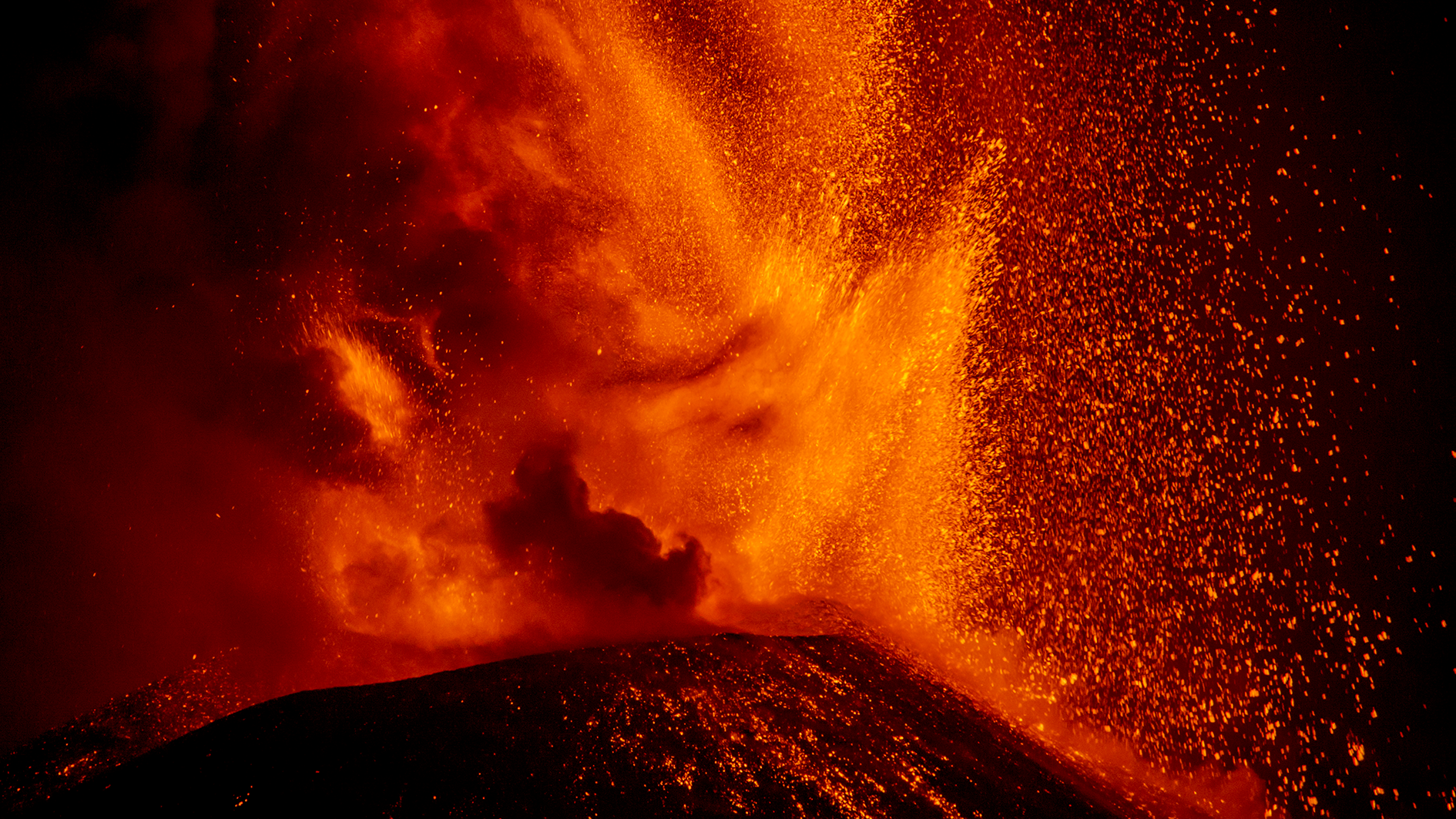
Over the past week, thousands of hikers from across the globe have come to the Italian island of Sicily to witness Mount Etna's first eruptions of the year.
In a dazzling display of volcanic power, Etna has illuminated the night sky with vivid spurts of bright lava. Eruptions began on February 11, and have continued sporadically, with large lava spurts spotted on Monday, February 17.
But, while Sicily usually welcomes visitors, officials have voiced concerns about overcrowding on its narrow streets. In a furious Facebook post, Sicily's head of regional civil protection, Salvo Cocina describes: "a wild scene with cars crowding the narrow roads, a traffic standstill…and rescue vehicles unable to pass”.
Cocina is also angry about hikers ignoring safety regulations atop the snowy peak. He said: "As darkness falls, the situation becomes extremely dangerous, with rising risks of falls and people sinking into the snow.”
Eight people got lost on Mount Etna on Monday (February 17). They were found several hours later after a lengthy search mission. The day before, a 48-year-old man suffered a fractured foot after falling on the mountain. Social media clips have even shown tourists standing just a few feet away from flowing lava.
Hikers ascending the mountain during volcanic activity can legally scale a few, approved routes with the help of an expert guide. Visitors are not allowed within 500 meters of lava or the Bocca Nuova crater where the eruptions come from.
Carlo Caputo, the mayor of nearby Belpasso condemned foolhardy trekkers for getting too close to the lava.
"Though visually striking, it exposes them to serious risks, as the lava, interacting with the snow, can instantly vaporize it and, with the thermal energy released, may violently hurl fragments or rocks," he told BlogSicilia.
Etna is one of Europe's most active volcanos. It can erupt multiple times in a year or even a month, shooting lava and ash high feet into the air. In 2021, Etna erupted so many times that it grew almost 100ft / 30m in volcanic rock.
Catch the next eruption of Mount Etna
Fancy witnessing Etna in full flow? Here's how to catch the next dazzling eruption without impacting the local area or risking your own safety.
- Check for the next eruption: Etna erupts sporadically throughout the year, with little pattern or respect for the seasons. The Italian National Institute of Geophysics and Volcanology monitors the volcano to accurately predict eruptions up to a week in advance. Check the real-time volcano data on its website for updates.
- Book a guide: Hikers on Mount Etna must be accompanied by an expert guide during volcanic activity. Guides cost €50 to €100 per person and take visitors on a six-hour 'summit tour' around the volcano.
- Respect the roads: Sicily's old, historic roads weren't built to accommodate hundreds of eager hikers parking along their sides. Park well away from the mountain or in an approved parking area.
- Keep your distance: Visitors have been ordered to stay at least 1,640ft / 500m from dangerous volcanic areas. Lava and molten rock can be unpredictable and very dangerous, stay well away even if others disregard the rules.
- Get a better view: Etna's eruptions are an incredible sight from wherever you're standing, but if you'd like to get a better look, consider using a powerful pair of binoculars. We recommend a lightweight pair like the Noc Provisions Field Issues, which won't weigh you down on the trek up.
- Wear the right footwear: If you're heading up to hike on a volcano, wear a reliable pair of hiking boots. Newly formed molten rock can be both sharp and slippery, so make sure to lace up in a tough, dependable pair with ample grip and a sturdy exterior. For challenging summits, we recommend the Mescalito TRK Pro boots from Scarpa. They're tough, stable, and crampon-compatible for snowy sections.
- Wrap-up warm: At 11,165ft / 3,403m, the summit at Mount Etna is cold in all seasons. In the winter temperatures can drop as low as 54°F / -12°C. If you're keen to see an eruption, make sure you wrap up warm with plenty of layers. We recommend taking a long-sleeve base layer, mid layer, outer layer, and waterproof layer.
For more on hiking in Italy, check out our expert guide.
- The best trekking poles: take the pressure off when you're out on the trails
- The best hiking gloves: when the mercury dips, these picks deliver impressive warmth and weather protection







